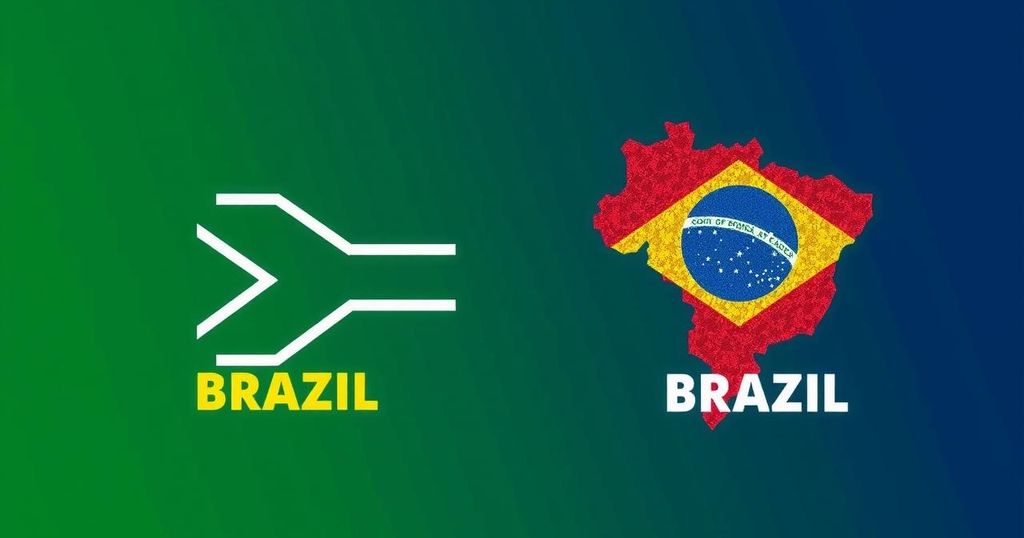South Africa and Brazil have recently joined the ranks of the top five iGaming markets worldwide. Blask’s analysis shows Brazil surpassing England in online betting participation, while South Africa leads globally with a 30% engagement rate. Both markets exhibit unique growth metrics, with Brazil demonstrating higher volatility and South Africa showcasing stability. The demographic profiles indicate significant insights into user behavior, with potential implications for the global iGaming landscape.
In a significant advancement within the global iGaming industry, South Africa and Brazil have emerged as formidable competitors, now ranking among the top five iGaming markets worldwide. Blask, recognized as the leading AI-driven market analytics ecosystem for the iGaming sector, has analyzed the data to reveal the underlying factors prompting this noteworthy shift. According to a recent assessment, both nations have succeeded in surpassing traditional powerhouses, reshaping the landscape of online betting. Notably, Brazil’s rise is marked by its recent overtaking of England in online betting participation, recording an impressive 22% of its population engaged in online betting platforms, compared to 19% of individuals in England. This surge marks a remarkable increase from the previous year’s participation rate of only 15%. Brazil now ranks fifth globally in bookmaker usage, behind New Zealand, Greece, Norway, and South Africa— the latter boasting a staggering 30% engagement rate, thus earning its position as the global leader in iGaming participation. Detailed metrics provided by Blask illustrate the market dynamics within South Africa and Brazil. In South Africa, the Blask Index has shown fluctuations throughout 2024, with significant increases in online betting participation, reflecting a healthy engagement trend. The eGGR (effective gross gaming revenue) in South Africa has remained relatively stable, averaging around $87 million, with peaks observed in September reaching $93 million. Conversely, Brazil presents a strikingly higher volatility in its market metrics. The Blask Index began at 169 million in January, with a notable peak at 228 million in July, indicating strong growth indicative of an expanding market. The eGGR data demonstrates a range from $216 million to $1.1 billion, with the average also increasing significantly over the months. Furthermore, the customer profile analysis reveals targeted demographic insights. In South Africa, approximately 18 million individuals are engaged in online betting, with a notable representation from the age group of 25-34. Conversely, Brazil, with its larger demographic of approximately 47 million participants, displays a younger player base dominated by the 25-34 age group, highlighting generational differences in engagement rates. Ultimately, the ascendance of South Africa and Brazil as significant players in the iGaming market underscores a broader trend of emerging economies acquiring a pivotal role in the global online gambling industry. The growth trajectories of these nations not only reflect shifts in market power but also suggest the potential for shaping future industry trends and innovations. The successful engagement seen in these countries might well serve as a model for other emerging markets, heralding a new era in the online betting landscape.
The discussion of South Africa and Brazil’s emergence as leading iGaming markets highlights the shift in power dynamics within the global online gambling industry. Traditional markets such as England have been challenged by these emerging economies, which are experiencing rapid growth in online betting participation. The data provided by Blask, an AI-driven analytics platform, offers insights into market behaviors, user demographics, and engagement metrics, all crucial for understanding this transformation.
In conclusion, the rise of South Africa and Brazil in the global iGaming ranks reflects a fundamental change in the online gambling landscape, with South Africa achieving the highest participation rates and Brazil demonstrating robust growth trends. The diverse metrics regarding engagement and revenue within these markets highlight their potential and stability compared to traditional sectors. Thus, these developments signal a transformative trend wherein emerging economies are increasingly influencing global iGaming dynamics.
Original Source: next.io







